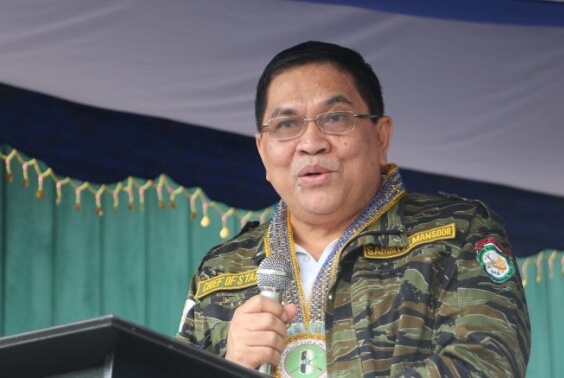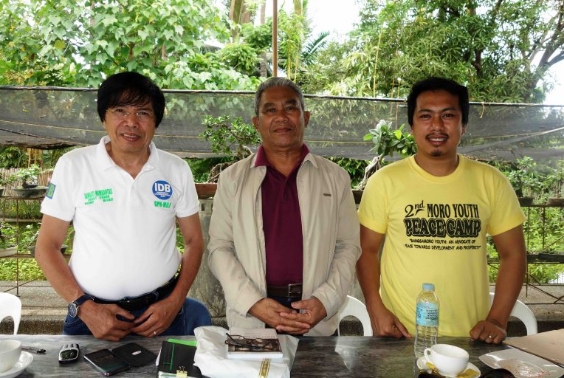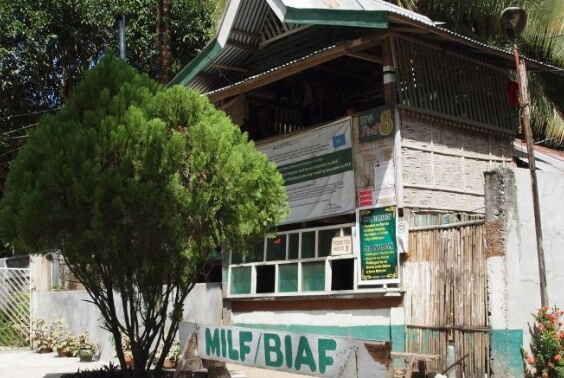- SOUTHERN PHILIPPINES
Interview with Assemblyman Zia Alonto Adiong
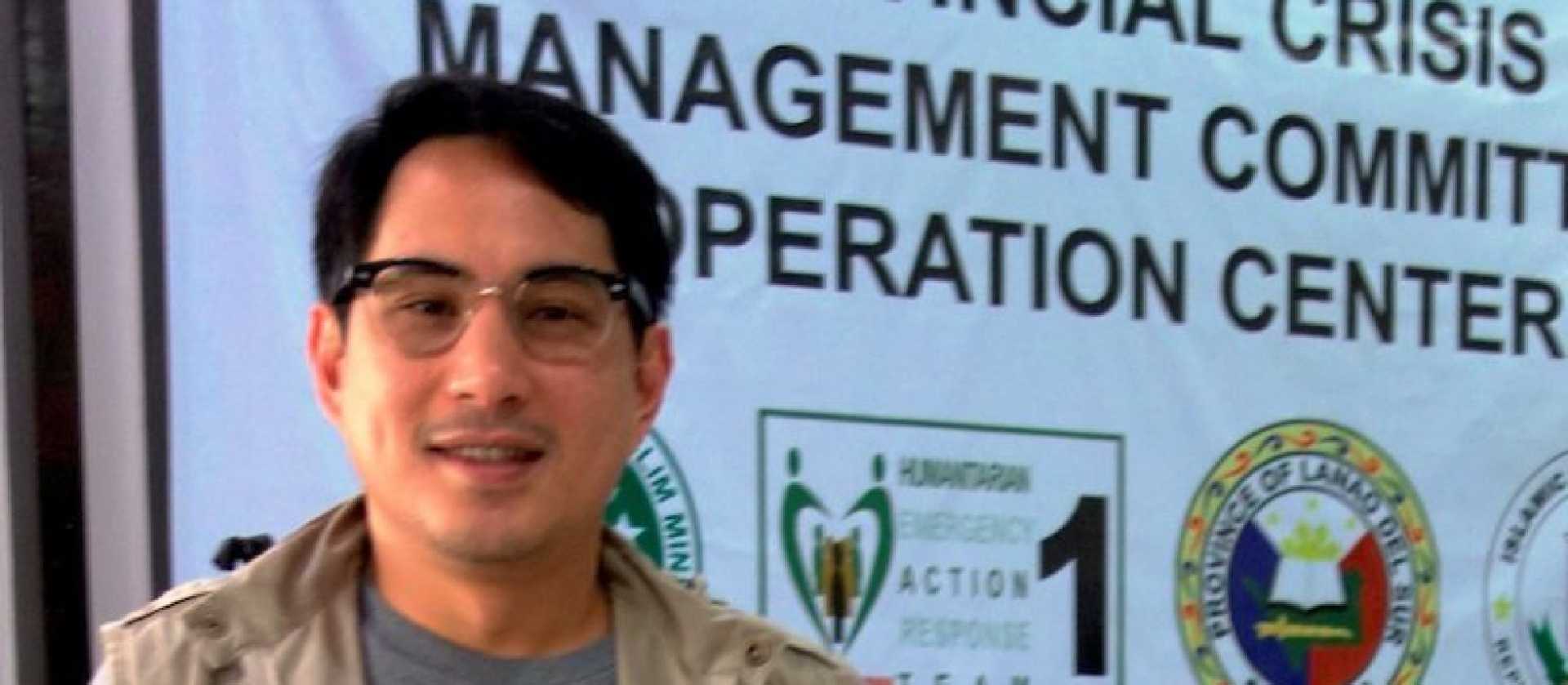
Mr. Zia Alonto Adiong, an assemblyman of the Regional Assembly in the Autonomous Region in Muslim Mindanao, serves as the spokesperson for the Lanao del Sur Provincial Crisis Management Committee.
by Masako Ishii, Professor, Rikkyo University
The clashes between the Philippine government forces and the “Maute Group” in Marawi City on May 23, 2017 have developed into the ongoing armed conflict known as the Marawi siege. The “Maute Group” is presumed to pledge allegiance to the Islamic State. Following the clashes, President Duterte declared martial law in the Southern Philippines to fight against terrorism. However, the end to the siege is yet to be seen. The rise of the extreme violence has become a serious concern in the Philippines.
Q. First of all, may I ask what the task of the Provincial Crisis Management Committee (PCMC) is?
Assemblyman Zia Alonto Adiong
The PCMC is an inter-agency cluster that identifies responses to specific needs of evacuees. We have different branches such as logistics, human security, retrieval of dead bodies, relief operations, rescue operations, etc. We basically focus on humanitarian response operations and work under one umbrella, so that we can respond to needs by mobilizing all offices immediately. Under our PCMC, we have set up communications so that all offices provide information and relay the information to the public. That is now my job.
Q. So, the PCMC is the coordinating body of humanitarian operations while simultaneously engaging in information gathering and dissemination?
Assemblyman Zia Alonto Adiong
Yes.
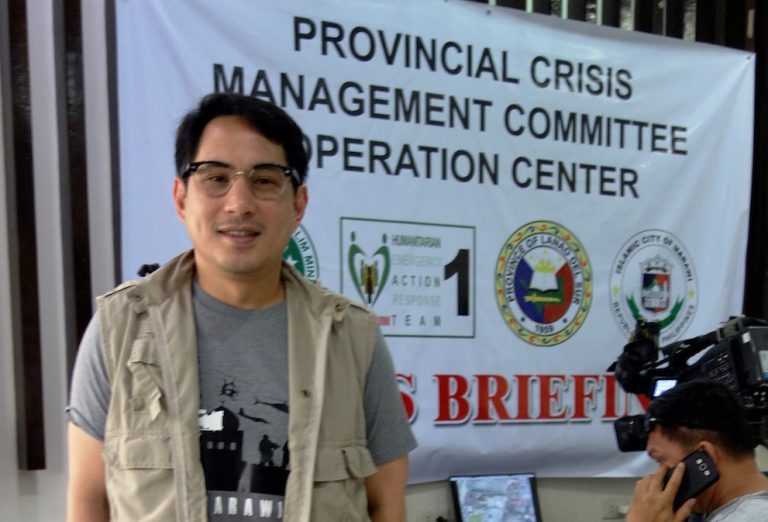
Q. Would you coordinate only with governmental agencies or do you also coordinate with international non-governmental organizations (NGOs) or civil society organizations?
Assemblyman Zia Alonto Adiong
We also coordinate with NGOs. In fact, JICA [the Japanese International Cooperation Agency] has also pledged financial support to rehabilitation. But rehabilitation has not yet started because of the actual crisis. We go directly to the national government when it involves large financial assistance. We set up a mechanism wherein NGOs can actually go to a specific area or place where there are evacuees and provide support directly to them. We have organized the relief operation response so that we would know the needs of each evacuation center.
Q. It has been more than three months since the battle occurred. What is the condition of the evacuees now?
Assemblyman Zia Alonto Adiong
Right now, we have more than 600,000 IDPs [Internally Displaced Persons]. They are spread out through every region. The Department of Social Welfare and Development (DSWD) is the lead agency providing relief goods to IDPs in evacuation centers as well as home-based evacuees.
We also conduct intention surveys so that we would know the intention of the IDPs: whether they want to relocate, resettle, or remain in the area. The intention surveys will guide us in creating an early recovery plan. We have done this for the evacuees in Iligan City because there have been so many complaints. We asked our IDPs in the evacuation centers to move to their area of origin because the residents of Marawi City are not the only ones who fled from the fighting. There are also some IDPs coming from different towns across the province. We want them to be transported back to their hometown and we have already mobilized all the mayors of all the towns here in Lanao del Sur to use their gymnasiums and set up proper, official evacuation centers so that the relief goods and the help coming from the national government will be concentrated and will be directly supervised by the province and the city. In this way, it is much easier for us to monitor the number of our IDPs. Unfortunately, we only had a small number of people who could be convinced to go back to their hometowns.
In the meantime, we have identified camp managers and enumerators in every evacuation center so that they will know the number of IDPs as well as their needs. They coordinate with the Barangay Captain where the evacuation center is located. To compensate the needs of the IDPs that are in Iligan City, the Barangay Captains in Iligan City also coordinate with the counterpart here in Marawi City because we have the Disaster Access Family Card. The Barangay Captains in Marawi City, whose residents fled to Iligan, are best able to identify and determine if those home-based IDPs or evacuees in a certain area are really bona fide residents of his or her Barangay. In this way, we can identify and determine the number of the evacuees and provide the Disaster Access Family Card to them. The government’s effort has to be based on the actual number of IDPs because you are talking about providing relief goods and food to more than 600,000 people. Therefore, we have to justify the budget because it requires a lot of money.
Q. What about the education of the children?
Assemblyman Zia Alonto Adiong
We already opened schools here in Marawi City. Those students in Iligan City and Cagayan de Oro, Marawi City division coordinated with the City Governments. They set up the temporary learning spaces for those students that they could not accommodate.
Q. How do you reach the home-based evacuees?
Assemblyman Zia Alonto Adiong
As long as they have the Disaster Access Family Card, they can receive relief goods from the Government.
Q. Have you begun preparing for the recovery of the city?
Assemblyman Zia Alonto Adiong
For the rehabilitation, there is an ongoing coordination and meetings with the Task Force Bangon Marawi . When the war is over, they can actually initiate concrete plans and create concrete projects for rehabilitation. However, you cannot do the actual damage assessment when there is an ongoing war.
Q. I heard that many of the evacuees were involved in business.
Assemblyman Zia Alonto Adiong
Yes. They also have to be provided with livelihood assistance and loans, etc.
Q. My next question is not related to the task of PCMC but because you are a resident of Marawi I would like to ask you your opinion of why this Marawi siege happened. What do you think is the reason behind the rise of the “Maute Group?”
Assemblyman Zia Alonto Adiong
This is my own opinion. Well, number one, there is a global problem. The Philippines is a fertile ground for terrorist organizations to grow because there is still an ongoing issue of social injustice against the Moro people, the Muslim minority. The terrorist organizations use that and the fear and disappointment of the people to induce them to instigate against the government.
Throughout these years there have been a series of talks and discussions of a peace process and yet there is no actual meaningful, sustainable development resulted from those talks. Although we have the Autonomous Region in Muslim Mindanao, it does not really respond well to the needs of the people. There is still poverty, injustice, the issue of land acquisition, etc. And so, all of these issues have been propagandized and are now being utilized by the terrorist group to entice young people.
Q. Young people are enticed to join the extreme group.
Assemblyman Zia Alonto Adiong
Yes. The young generation have seen their fathers and their grandfathers engaging in the peace process, yet there is no actual result emerging from that process. So, there is frustration. It is a fertile ground to introduce violent extremism. All of these talks have not brought about change in our society. Therefore, they may think that ISIS can bring something new and can actually produce change. As long as there is social injustice, there will always be people capitalizing on these problems to introduce a new set of ideas. But unfortunately, ISIS is a violent, extremist terrorist organization.
Q. Do you think that the non-passage of the Bangsamoro Basic Law (BBL) has affected the rise of this group?
Assemblyman Zia Alonto Adiong
No, this is not so much about that. Some other groups may say that it was instigated because of the non-passage of the BBL. But even before the BBL, there was always the issue of poverty, inequity, and unemployment. The Maute brothers used to be MILF members; it could be part of that because of the non-passage. But this is something entirely new. They are fed up with the peace process and want a much more aggressive approach—they want a separate state. It is putting up and abolishing the system even in the Philippines. It is very alien and an imported ideology. They are giving out 15,000 pesos to people each month just to be enlisted. They provide money for the recruitment process.
Q. What do you think is most needed in the recovery phase in order to stop extreme ideas from spreading among the young people?
Assemblyman Zia Alonto Adiong
So many things, I cannot just decide on just one. First of all, we have to make sure that the people will feel that the government is there, meaning the government can adjust to fighting with arms in battle and to fighting extremism. And they need to feel that they will be compensated for their properties that have been destroyed. They need to feel that they are also important in solving the problem. They also need to partner with the civilian community in order to really defeat the ideological extremists.
Masako Ishii
Thank you very much.
Assemblyman Zia Alonto Adiong
Thank you very much.
Related Video Clip:
What’s next for Marawi after the war? Rappler talks to Zia Alonto Adiong, Marawi crisis spokesperson
Related Article:
Purging Marawi officials will distract rehab efforts (Rappler, October 12, 2017)





